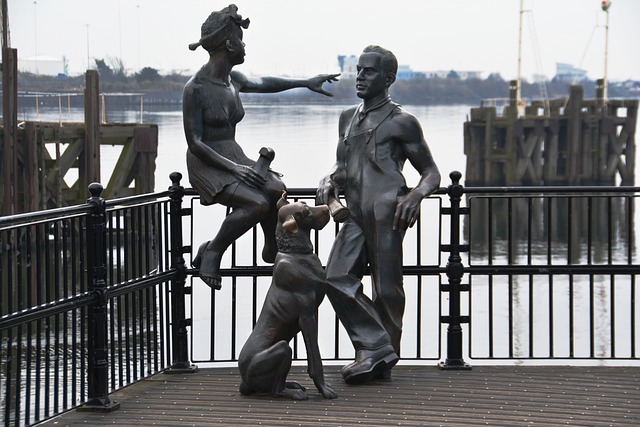Who keeps the dog after a divorce?
 For some families, as well as married couples without children, a dog (or dogs) can become a beloved member of the family and a truly important part of their owners lives. Despite this, many couples don’t consider what would happen to the dog should they divorce in the future; therefore, a formal agreement is rarely put in place to determine who should keep the dog should divorce ever become an unfortunate eventuality.
For some families, as well as married couples without children, a dog (or dogs) can become a beloved member of the family and a truly important part of their owners lives. Despite this, many couples don’t consider what would happen to the dog should they divorce in the future; therefore, a formal agreement is rarely put in place to determine who should keep the dog should divorce ever become an unfortunate eventuality.
With the stress and emotional turmoil that is often experienced during divorce proceedings, the custody of a pet may seem trivial to many couples. It can also seem trivial and unnecessary to even consider when they first get the pet during their happy marriage. However, according to data from Direct Line Group, an estimated 28,500 divorce cases each year involve the custody of a family pet, which equates to 90 cases every single day.
Pets are often seen as one of the most important aspects of divorce settlement, with high percentages of people prioritising pets as an item within a divorce settlement over the likes of pensions, furniture, vehicles, jewellery, and savings and investments.
Some pet custody battles have also made mainstream media, such as the divorce of Ant McPartlin and Lisa Armstrong ultimately leading to shared custody of their pet Labrador.
How can you ensure what happens to the pet?
Couples can sign a pre-nuptial document to determine what will happen to the pet (and other assets) so that they can avoid a legal battle should they part ways in the future. Commonly and cleverly referred to as a “pet-nup”, this document isn’t legally binding, but the agreement can help a judge decide how custody of the dog will work. This is a straight-forward and simple way to avoid difficulties or contention surrounding the pet during any divorce proceedings and can help the relationship end amicably without court procedures over who should keep the pet.
Read: Prenuptial agreement in Wales and England
How does pets and divorce work from a legal standpoint?
When it comes to determining what should happen to pets after a divorce in Wales and England, divorce legislation can seem a little cold. This is because dogs are legally treated as chattels, which means they have the same legal status as items of personal property, such as jewellery or furniture. It’s typical for couples to believe that their pet would be treated much the same way as a child, but this isn’t the case. Who gets custody of the pet could simply come down to who paid for the dog, with vet bills or breeders being used as evidence and witnesses to help a judge decide who will keep the dog following the divorce.
With that said, other factors can also come into play. If each partner paid for the dog and it’s ongoing upkeep, most judges are likely to decide that the pet should stay in the family home. Arrangements for visitation or financial support will not be put in place as they are with a child, so those matters will need to be part of an agreed settlement between the divorcing parties.
Unfortunately, many pets are rehomed, or even abandoned because divorcing couples are unable to reach an agreement over who should keep the pet. Often times the pet is left with the partner who no longer wants the pet, didn’t really want it to begin with or who can’t afford the upkeep.
Read: Find the best South Wales divorce lawyers for you
If you’re considering divorce and are worried about what will happen to your family dog or other pet, contact specialist divorce solicitors who can help you prepare a pre-nuptial agreement and offer expert advice. You can get in touch with our dedicated team of solicitors here at Fonseca Law by calling 01495 303124, e-mailing enquiries@fonsecalaw.co.uk or by completing our simple online contact form.
